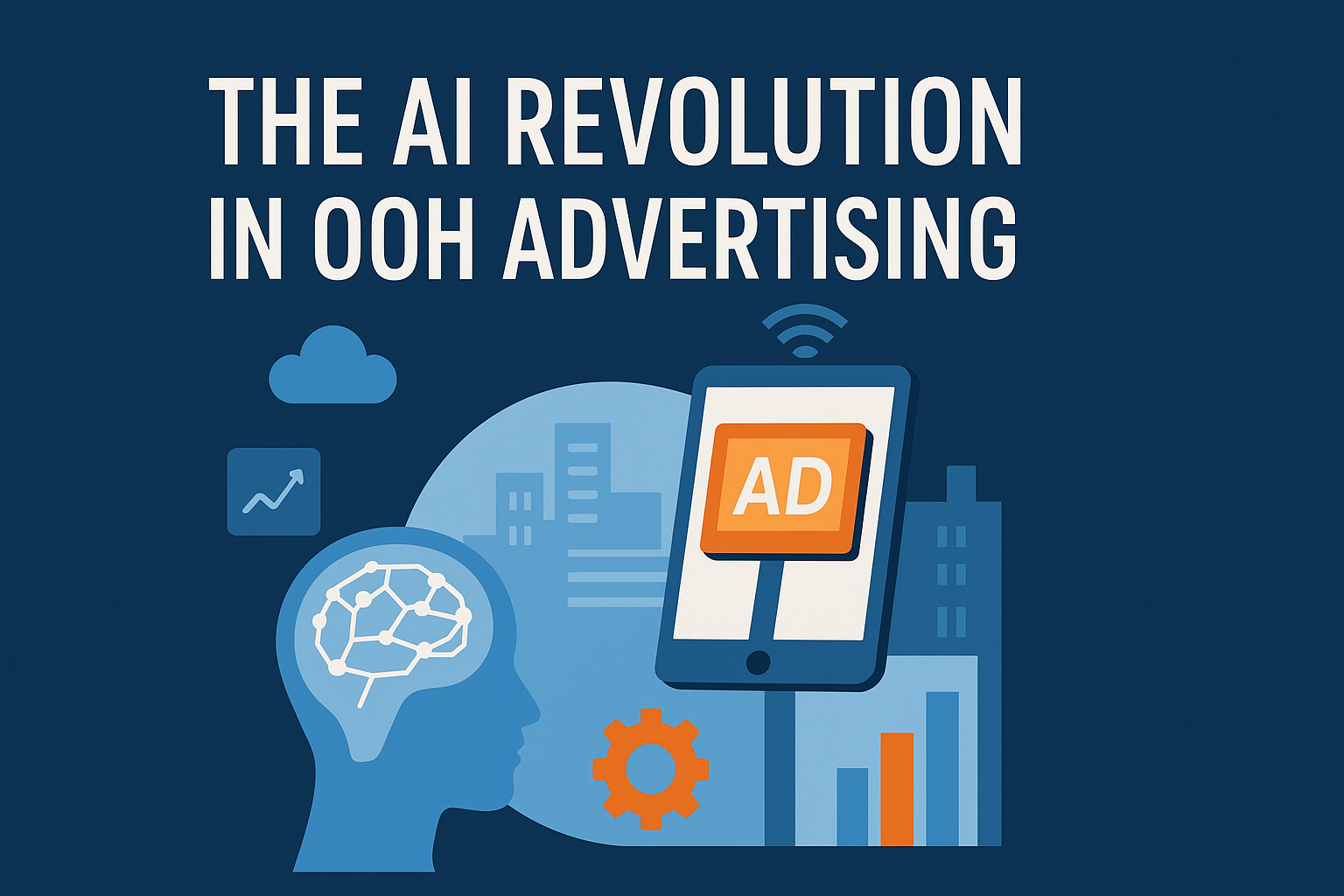
Introduction
Artificial Intelligence (AI) is no longer a buzzword—it’s already changing the way we think about Out-of-Home (OOH) advertising. For decades, billboards were about gut instinct and visibility. Now, thanks to AI, brands can move beyond guesswork and tap into real-time, data-backed insights that make campaigns sharper, faster, and measurable.
At Adnoxy, we believe AI is the key to unlocking the next generation of OOH advertising—where every site is optimized, every impression is smarter, and every rupee counts.
How AI is Reshaping OOH
- Smarter Targeting: AI blends mobility data, traffic density, demographics, and even weather to find the perfect audience.
- Predictive Intelligence: Algorithms forecast which locations and times will yield maximum visibility.
- Dynamic Content: Digital screens adapt automatically—coffee ads on rainy mornings, cold drinks on sunny afternoons.
- Actionable Measurement: AI links billboard exposure to real-world outcomes—like store visits, app downloads, or online conversions.
- Optimized ROI: By reducing wasted impressions, AI ensures brands get more impact per spend.
Real-World Applications
- McDonald’s pushes hot coffee ads on cold days and ice cream on warm days.
- Coca-Cola personalizes DOOH spots during live sporting events.
- Netflix tailors content ads to highlight trending shows in different neighborhoods.
- Google promoted Google Maps through location-specific suggestions across OOH networks.
💡 Did you know? Brands using AI-powered OOH campaigns have reported 25–30% higher ROI compared to traditional placements.
The Challenges Ahead
Like every innovation, AI in OOH comes with hurdles:
- Privacy & Compliance: Using mobility and behavioral data means staying aligned with privacy regulations.
- Infrastructure Costs: DOOH networks need hardware upgrades and analytics systems to support AI.
- Data Integrity: Garbage in, garbage out—bad data can derail even the smartest AI model.
How Brands Can Get Started with AI in OOH
- Start Small: Experiment with one AI variable (like weather-based creatives).
- Leverage Platforms: Work with integrated solutions such as Adnoxy that bring data, inventory, and AI tools together.
- Experiment & Optimize: Run A/B tests—static vs AI-driven—to see measurable differences.
- Link to Business Outcomes: Use AI to connect OOH spend directly to store traffic, sales lift, or online conversions.
Conclusion
OOH is no longer just about being seen—it’s about being seen by the right people, at the right time, with the right message. AI makes this possible.
At Adnoxy, we’re building the tools that let brands spend smarter, engage deeper, and measure better. For marketers, adopting AI in OOH isn’t just an advantage—it’s the new competitive edge.



